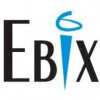Filter interviews by
QBurst Technologies Java Developer Interview Questions, Process, and Tips
QBurst Technologies Java Developer Interview Experiences
2 interviews found
I applied via Naukri.com and was interviewed in Jul 2022. There was 1 interview round.
(11 Questions)
- Q1. Spring modules - spring aop, spring security
- Q2. Given a string, get the count of each word in the string and put it in map
- Ans.
Count the occurrence of each word in a given string and store it in a map.
Split the string into words using whitespace as delimiter
Create a map to store the word count
Iterate through the words and update the count in the map
Return the map
- Q3. Questions on SQL native queries
- Q4. Class not found and no class definition found exception
- Ans.
Class not found and no class definition found exception occurs when a required class is not found during runtime.
This exception occurs when the JVM tries to load a class but cannot find it in the classpath.
It can happen if the class is missing from the project dependencies or if the classpath is not properly configured.
Check if the class is present in the correct package and if it is included in the project dependencie...
- Q5. Annotations in spring boot used
- Ans.
Annotations are used in Spring Boot for various purposes such as mapping requests, defining beans, and handling exceptions.
Annotations are used to provide metadata to the Spring framework.
They are used to map requests to controller methods using @RequestMapping.
Annotations like @Component, @Service, and @Repository are used to define beans.
Annotations like @ExceptionHandler and @ControllerAdvice are used for handling e...
- Q6. Http port & tomcat port
- Q7. What is Singleton class
- Ans.
Singleton class is a class that allows only one instance of itself to be created and provides a global point of access to it.
Singleton class restricts the instantiation of a class to a single object.
It is used when only one instance of a class is required to control actions throughout the system.
The Singleton pattern is implemented by creating a class with a method that creates a new instance of the class if one doesn'...
- Q8. What are the features in java 8
- Ans.
Java 8 introduced several new features including lambda expressions, streams, and default methods.
Lambda expressions for functional programming
Streams for efficient processing of large data sets
Default methods to add new functionality to interfaces
Date and Time API for improved handling of date and time
Nashorn JavaScript engine for improved performance
Parallel array sorting for faster sorting of large arrays
- Q9. What is functional interface
- Ans.
Functional interface is an interface with only one abstract method.
Functional interface can have any number of default or static methods
It is used for lambda expressions and method references
Examples include Runnable, Comparator, and Function interfaces
- Q10. Difference between jvm jre and jdk
- Ans.
JVM is an environment to run Java programs, JRE is a runtime environment, and JDK is a development kit.
JVM stands for Java Virtual Machine and is responsible for executing Java bytecode.
JRE stands for Java Runtime Environment and provides a runtime environment for Java programs.
JDK stands for Java Development Kit and includes tools for developing Java applications.
JDK includes JRE and additional development tools such ...
- Q11. What are Design patterns
- Ans.
Design patterns are reusable solutions to common software development problems.
Design patterns provide a common language for developers to communicate about solutions to common problems.
They can improve the quality, maintainability, and scalability of software.
Examples include the Singleton pattern, Factory pattern, and Observer pattern.
Design patterns can be categorized into three groups: creational, structural, and b
Interview Preparation Tips
Skills evaluated in this interview
I applied via Instagram and was interviewed in May 2022. There were 3 interview rounds.

10 questions from aptitude, basic problems from Indiabix
Basic java programs and oops concepts
Interview Preparation Tips
Interview questions from similar companies

I appeared for an interview before Mar 2021.
(3 Questions)
Round duration - 60 minutes
Round difficulty - Easy
This was a technical round with questions on DBMS.
- Q1. What is data integrity?
- Ans.
Data integrity refers to the accuracy, consistency, and reliability of data throughout its lifecycle.
Data integrity ensures that data is accurate and consistent in storage and transmission.
It involves maintaining the quality and reliability of data over time.
Methods for ensuring data integrity include checksums, encryption, and error detection codes.
Examples of data integrity violations include data corruption, unautho
- Q2. What is a trigger in the context of a database management system?
- Ans.
A trigger is a special type of stored procedure that automatically executes when certain events occur in a database.
Triggers are used to enforce business rules, maintain data integrity, and automate repetitive tasks.
They can be triggered by INSERT, UPDATE, or DELETE operations on a table.
Examples of triggers include auditing changes to a table, updating related tables when a record is modified, or enforcing referential
- Q3. What is the difference between clustered and non-clustered indexes in a database management system?
- Ans.
Clustered indexes physically order the data in the table, while non-clustered indexes do not.
Clustered indexes determine the physical order of data in the table, while non-clustered indexes do not.
A table can have only one clustered index, but multiple non-clustered indexes.
Clustered indexes are faster for retrieval of data, especially range queries, compared to non-clustered indexes.
Non-clustered indexes are stored se...
(3 Questions)
Round duration - 60 minutes
Round difficulty - Easy
Technical interview round with questions on DBMS.
- Q1. What is the difference between UNION and UNION ALL in SQL?
- Ans.
UNION combines and removes duplicates, UNION ALL combines without removing duplicates.
UNION merges the result sets of two or more SELECT statements and removes duplicates.
UNION ALL merges the result sets of two or more SELECT statements without removing duplicates.
UNION is slower than UNION ALL as it involves removing duplicates.
Example: SELECT column1 FROM table1 UNION SELECT column1 FROM table2;
Example: SELECT column...
- Q2. What are the functions of a cursor in PL/SQL?
- Ans.
A cursor in PL/SQL is used to retrieve and process multiple rows of data one at a time.
Allows iteration over a result set
Retrieves data row by row
Can be used to update or delete rows in a table
Must be declared, opened, fetched, and closed
- Q3. Write a SQL query to fetch the nth highest salary from a table.
- Ans.
SQL query to fetch the nth highest salary from a table
Use the ORDER BY clause to sort salaries in descending order
Use the LIMIT clause to fetch the nth highest salary
Round duration - 30 minutes
Round difficulty - Easy
This was a managerial round with typical behavioral problems.
Interview Preparation Tips
Tip 1 : Since this was a SQL post, I would suggest you to get the basics intact and try practicing few queries.
Tip 2 : Must do Previously asked Interview as well as Online Test Questions.
Tip 3 : Go through all the previous interview experiences from Codestudio and Leetcode.
Tip 1 : Have at-least 2 good projects explained in short with all important points covered.
Tip 2 : Every skill must be mentioned.
Tip 3 : Focus on skills, projects and experiences more.
Skills evaluated in this interview

I applied via Naukri.com and was interviewed in May 2019. There was 1 interview round.
Interview Questionnaire
4 Questions
- Q1. How MVC works for data flow?
- Ans.
MVC separates data flow into three components: Model, View, and Controller.
Model represents data and business logic
View displays data to the user
Controller handles user input and updates the model and view accordingly
Data flows from the model to the view through the controller
Changes in the view are communicated to the controller, which updates the model and view
- Q2. What are mvc layers
- Ans.
MVC stands for Model-View-Controller. It is a software design pattern that separates an application into three interconnected components.
Model: Represents the data and business logic of the application
View: Displays the data to the user and handles user input
Controller: Acts as an intermediary between the Model and View, handling user input and updating the Model and View accordingly
- Q3. Get and post methods
- Q4. Servlet life cycle
Interview Preparation Tips
Skills evaluated in this interview

I appeared for an interview in Aug 2017.
Interview Questionnaire
3 Questions
- Q1. Tell me something about yourself
- Ans.
I am a passionate software developer with experience in Java, Python, and web development.
Experienced in Java, Python, and web development
Passionate about coding and problem-solving
Strong communication and teamwork skills
Always eager to learn and adapt to new technologies
- Q2. Questions on data structures
- Q3. Questions on algorithms
Interview Preparation Tips
Experience: it took half-an-hour
Skills: Technical Skill, Technical Analysis, Speaking Skills
College Name: NIT Bhopal

I appeared for an interview before Mar 2021.
(6 Questions)
Round duration - 60 minutes
Round difficulty - Medium
The interviewer was really cool. He realized that I mostly work on java applications so he chose to ask me stuff related to that. He didn't want me to know the answer well but just wanted me to approach to it, maybe think more. He went through my resume back and forth and asked mostly about all my projects and their logic and how could I take them to the next level.
Tips: Be confident. Its okay not to know any answer, just try giving it a shot in the approach.
- Q1. What is the difference between an abstract class and an interface in Java?
- Ans.
Abstract class can have both abstract and non-abstract methods, while interface can only have abstract methods.
Abstract class can have constructors, member variables, and methods with implementation.
Interface can only have abstract methods and constants.
A class can implement multiple interfaces but can only extend one abstract class.
Example: Abstract class - Animal with abstract method 'eat', Interface - Flyable with m
- Q2. What is the difference between 'final', 'finally', and 'finalize' in Java?
- Ans.
final is a keyword used to declare constants, finally is a block used in exception handling, and finalize is a method used for cleanup.
final is a keyword used to declare constants in Java, meaning the value cannot be changed once assigned. Example: final int x = 10;
finally is a block used in exception handling to ensure a piece of code is always executed, whether an exception is thrown or not. Example: try { // code } ...
- Q3. What is the difference between the private and final access modifiers in Java?
- Ans.
Private restricts access to the class itself, while final prevents inheritance and method overriding.
Private access modifier restricts access to the class itself, while final access modifier prevents inheritance and method overriding.
Private members are only accessible within the same class, while final classes cannot be extended and final methods cannot be overridden.
Example: private int num; - num can only be accesse...
- Q4. What are the steps for establishing a JDBC connection?
- Ans.
Establishing a JDBC connection involves loading the driver, creating a connection, creating a statement, executing queries, and handling exceptions.
Load the JDBC driver using Class.forName() method
Create a connection using DriverManager.getConnection() method
Create a statement using connection.createStatement() method
Execute queries using statement.executeQuery() method
Handle exceptions using try-catch blocks
- Q5. What is JSON?
- Ans.
JSON is a lightweight data interchange format used to store and transmit data between a server and a web application.
JSON stands for JavaScript Object Notation.
It is easy for humans to read and write, and easy for machines to parse and generate.
JSON is language-independent and can be used with any programming language.
Example: {"name": "John", "age": 30}
Example: [{"name": "Alice", "age": 25}, {"name": "Bob", "age": 35}
- Q6. What do you know about garbage collection in Java?
- Ans.
Garbage collection in Java is the process of automatically managing memory by deallocating objects that are no longer needed.
Garbage collection helps in preventing memory leaks by reclaiming memory used by objects that are no longer referenced.
Java uses a garbage collector to automatically manage memory, unlike languages like C++ where memory management is manual.
Garbage collection in Java can be triggered by calling S...
Round duration - 30 minutes
Round difficulty - Easy
I wouldn't say it went great but it was fine. I did not think I would clear it as for most of the questions the interviewer seemed disappointed and wanted more out of me.
Interview Preparation Tips
Tip 1 : Must do Previously asked Interview as well as Online Test Questions.
Tip 2 : Go through all the previous interview experiences from Codestudio and Leetcode.
Tip 3 : Do at-least 2 good projects and you must know every bit of them.
Tip 1 : Have at-least 2 good projects explained in short with all important points covered.
Tip 2 : Every skill must be mentioned.
Tip 3 : Focus on skills, projects and experiences more.
Skills evaluated in this interview

Software Developer Interview Questions & Answers
Oracle Cernerposted on 19 Aug 2016
Interview Questionnaire
19 Questions
- Q1. Introduce yourself
- Ans.
I am a software developer with experience in Java and Python.
Proficient in Java and Python programming languages
Experience in developing web applications using Spring framework
Familiarity with database management systems such as MySQL and MongoDB
- Q2. Tell me more about your achievements
- Ans.
I have achieved success in developing and implementing various software solutions.
Developed a web application that increased user engagement by 30%
Implemented a new feature that reduced system downtime by 50%
Created a mobile app that received 4.5-star rating on app stores
Led a team of developers to successfully complete a project within a tight deadline
- Q3. What sort of projects do you work on ?
- Ans.
I work on a variety of projects ranging from web development to mobile app development.
Web development using HTML, CSS, JavaScript, and various frameworks such as React and Angular
Mobile app development for iOS and Android using Swift, Kotlin, and React Native
Database design and management using SQL and NoSQL databases such as MySQL and MongoDB
API development and integration using REST and GraphQL
Machine learning proje...
- Q4. What is the difference between a hardworker and a smartworker?
- Ans.
A hardworker puts in more effort, while a smartworker works efficiently and effectively.
A hardworker may spend more time on a task, while a smartworker finds ways to complete it faster.
A hardworker may rely on brute force, while a smartworker uses their skills and knowledge to solve problems.
A hardworker may struggle with prioritization, while a smartworker knows how to focus on the most important tasks.
A hardworker ma...
- Q5. What makes you say that you are more of a developer than an analyst ?( I was asked for choice )
- Q6. Why is Zuckerburg in news these days?
- Ans.
Zuckerberg is in news due to Facebook's handling of user data and misinformation.
Facebook's role in the 2016 US Presidential election
Cambridge Analytica scandal
Testimony before US Congress
Ongoing debate on social media regulation
- Q7. Tell me about yourself
- Ans.
I am a software developer with experience in Java and Python.
I have a Bachelor's degree in Computer Science.
I have worked on various projects involving web development and data analysis.
I am proficient in Java and Python programming languages.
I am a quick learner and enjoy working in a team environment.
- Q8. Which is your favourite project (among mentioned in resume) and why?
- Ans.
My favorite project is the e-commerce website I developed for a local business.
I enjoyed working on the front-end design and user experience.
I implemented a secure payment gateway and order tracking system.
The website increased the business's online sales by 50%.
I received positive feedback from the client and their customers.
- Q9. OOPs concepts
- Q10. Explain inheritance
- Ans.
Inheritance is a mechanism in object-oriented programming where a new class is created by inheriting properties of an existing class.
Inheritance allows code reuse and promotes code organization.
The existing class is called the parent or superclass, and the new class is called the child or subclass.
The child class inherits all the properties and methods of the parent class and can also add its own unique properties and ...
- Q11. Difference between finally , finalize and final
- Ans.
finally is a keyword used in try-catch block, finalize is a method in Object class, and final is a keyword used for declaring constants.
finally is used to execute a block of code after try-catch block
finalize is called by garbage collector before destroying an object
final is used to declare a constant variable or to make a class uninheritable
- Q12. Private vs final keyword in considerance with member functions in an application offered to the user
- Ans.
Private keyword restricts access to member functions within the class while final keyword prevents overriding of functions.
Private keyword is used to hide the implementation details of a class from the user.
Final keyword is used to prevent the user from overriding a function in a subclass.
Using private and final keywords together can ensure that the implementation details of a class are not modified by the user.
- Q13. Write an interface
- Ans.
An interface defines a set of methods that a class must implement.
An interface is declared using the 'interface' keyword.
All methods in an interface are public and abstract by default.
A class can implement multiple interfaces.
Interfaces can also extend other interfaces.
Example: public interface MyInterface { void myMethod(); }
- Q14. Difference between Abstract class and Interface
- Ans.
Abstract class is a class with some implementation while Interface is a contract with no implementation.
Abstract class can have constructors while Interface cannot
Abstract class can have non-abstract methods while Interface cannot
A class can implement multiple interfaces but can only inherit from one abstract class
Abstract class is used when there is a need for common functionality among related classes while Interface...
- Q15. Inheritance types in Java
- Ans.
Inheritance types in Java
Java supports single and multiple inheritance through classes and interfaces respectively
Single inheritance is when a class extends only one parent class
Multiple inheritance is when a class implements multiple interfaces
Java also supports hierarchical inheritance where multiple classes extend a single parent class
Java does not support multiple inheritance through classes to avoid the diamond pr
- Q16. Order of multiple catch blocks in a single try block in java. Will it compile if the general catch was before the specific one?
- Ans.
Order of catch blocks in a try block in Java
Specific catch blocks should come before general catch blocks
If general catch block comes before specific catch block, it will result in a compile-time error
If multiple catch blocks are present, only the first matching catch block will be executed
- Q17. What do you know about Garbage collection
- Ans.
Garbage collection is an automatic memory management process that frees up memory occupied by objects that are no longer in use.
Garbage collection is used in programming languages like Java, C#, and Python.
It helps prevent memory leaks and reduces the risk of crashes due to memory exhaustion.
Garbage collection works by identifying objects that are no longer in use and freeing up the memory they occupy.
There are differe...
- Q18. Write code for connecting a java application to the database
- Ans.
Code for connecting a Java application to a database
Import the JDBC driver for the specific database
Create a connection object using the DriverManager class
Create a statement object to execute SQL queries
Execute the query and retrieve the results
Close the connection and release resources
- Q19. What is JSON?
- Ans.
JSON stands for JavaScript Object Notation, a lightweight data interchange format.
JSON is used to transmit data between a server and a web application, as an alternative to XML.
It is easy to read and write for humans and easy to parse and generate for machines.
JSON is a text format that is completely language independent but uses conventions that are familiar to programmers of the C family of languages.
Example: {"name"
Interview Preparation Tips
Experience: The test had 50 questions which were to be answered in 50 minutes. The test is not very difficult if you got basic skills in aptitude, but the most important thing is managing time. The level of difficulty was moderate.
Tips: Do not waste time on verbal questions which have a direct answer ( synonyms and antonyms) which you are not very sure of.
Just try making a smart guess when you have a doubt by elimination or something.
Duration: 50 minutes
Total Questions: 50
Round: HR Interview
Experience: I wouldn't say it went great but it was fine. I did not think I would clear it as for most of the questions the interviewer seemed disappointed and wanted more out of me.
Tips: Keep smiling.
Only put things which you are thorough about, in your resume.
The interviewer too doesn't know everything, so just be confident in whatever you say-the interviewer might get convinced.
Round: Technical Interview
Experience: The interviewer was really cool. He realized that I mostly work on java applications so he chose to ask me stuff related to that.
He didn't want me to know the answer well but just wanted me to approach to it, maybe think more.
He went through my resume back and forth and asked mostly about all my projects and their logic and how could I take them to the next level.
Tips: Be confident.
Its okay not to know any answer, just try giving it a shot in the approach.
Skills: Object Oriented Programming (OOP) Basics, Basics Of Machine Learning, Ability To Analyse, Ability To Think Of Creative Solutions, Ability To Think Beyond Boundaries, Ability To Convince, Database Management, Java Programming
College Name: Amrita School Of Engineering, Coimbatore
Funny Moments: I had mentioned Japanese as languages known in my resume. During the HR interview , I was asked to tell "How are you ?" in Japanese. I knew that the interviewer didn't know any of that language but I was a little scared to just tell anything.
You could try giving a shot in a similar situation :P
Skills evaluated in this interview

Interview Questionnaire
2 Questions
- Q1. Algorithm and Trick questions on Java
- Q2. Your future interest, interaction capabilities
Interview Preparation Tips
Experience: Mention only those projects/works which you feel fully confident on, let any question be thrown your way.
Believe me, a simple project explained in a good way is better than a complex project that scares you going into the details.
Tips: A little bit of extra activities (sports/music) helps them picture you as not a total nerd, which might help in front of some interviewers.
Round: Interview
Experience: They will mostly try to trick you here, even if you are right, they will make you doubt yourself. It's just about believing oneself and answering in one go.
Tips: Stick to your answers if you feel it's right, changing it again and again won't do you much good.
Round: Interview
Experience: This is where you have to be most careful, what they seek is just your interest in the company or infact passion for their work and not leaving them mid-way for higher studies or startup plans.
Tips: Diverting talks to some extra-currics might help a lot here specially if they have interest in that too, like the one, I was giving interview to, was wearing a Barcelona cap and I had mentioned that I played football at Inter-Hostel level. So we talked about the recent Premier league for like 10 minutes and the mood was really lightened, thanks to that.
General Tips: It is never too late to be what you might have been.
Skills: Algorithms, Java, Interaction Skills, coding, C, C++
College Name: IIT DELHI
Motivation: The technology (Social-Media Management) they are working on is really interesting to know more about and can be a future pioneer in the coming days.
Funny Moments: One of the interviewer I became so friendly with, mid-way through the interview that we added each other right there on facebook.

I appeared for an interview in Aug 2016.
Interview Preparation Tips
Experience: The questions were tricky. We were given a paragraph and after reading it, a statement was given to us and we were asked to say if it is true, false or cannot say. The structure of the statement put us into a a tough place. So practice of such kind of questions is necessary.
For data interpretation questions a good hand on basic statistical mathematics is needed. One has to be quick because of the time crunch. The questions were approachable
Round: Technical Interview
Experience: In this round my resume was scanned and I was required to speak about myself, my projects and explain certain areas of my resume. The interviewer picked up one of my basic project, surprisingly, and asked me to elaborate on it. He asked me how I can improve the project. And I had to write a code to make that change. Basically, one should have a good idea about the projects they've done/ mentioned in their resume. And know it in detail.
Few questions on data structures. Prepare well for coding type questions and data structures.
Round: Puzzle Interview
Experience: The interviewer asked me two puzzles. They were moderate level. And also luckily he was helpful whenever I got stuck.
Round: HR Interview
Experience: HR round was good. Basic questions like " tell me more about yourself", brief information about my past history, college life, extra curricular activities. In the end she asked me, "should we hire you?" And I lightly answered " why not!" So it was a good interview overall.
Skills: Coding Skills, Team Working Ability, Project management
College Name: Visvesvaraya National Institute Of Technology

I applied via Naukri.com and was interviewed in May 2019. There were 5 interview rounds.
Interview Questionnaire
1 Question
- Q1. First round was Aptitude, then written programming, then Technical and then Technical+ HR
Interview Preparation Tips
Advice - Whenever you guys take interviews, please announce the results.
QBurst Technologies Interview FAQs
Tell us how to improve this page.
QBurst Technologies Interviews By Designations
- QBurst Technologies Software Engineer Interview Questions
- QBurst Technologies Senior Engineer Interview Questions
- QBurst Technologies Software Developer Interview Questions
- QBurst Technologies Engineer Interview Questions
- QBurst Technologies Senior QA Engineer Interview Questions
- QBurst Technologies Software Tester Interview Questions
- QBurst Technologies QA Engineer Interview Questions
- QBurst Technologies Quality Analyst Interview Questions
- Show more
Interview Questions for Popular Designations
- Senior Java Developer Interview Questions
- Junior Java Developer Interview Questions
- Java Software Developer Interview Questions
- Java Developer Trainee Interview Questions
- Java Software Engineer Interview Questions
- Associate Java Developer Interview Questions
- Software Developer Interview Questions
- Java J2ee Developer Interview Questions
- Show more
Java Developer Interview Questions from Similar Companies
|
Senior Engineer
424
salaries
| ₹6.5 L/yr - ₹17 L/yr |
|
Senior Software Engineer
336
salaries
| ₹6.5 L/yr - ₹21 L/yr |
|
Lead Engineer
301
salaries
| ₹8.2 L/yr - ₹24 L/yr |
|
Software Engineer
261
salaries
| ₹3.6 L/yr - ₹14 L/yr |
|
Engineer
141
salaries
| ₹4 L/yr - ₹11.6 L/yr |

Thomson Reuters

Oracle Cerner

Chetu

R Systems International
- Home >
- Interviews >
- QBurst Technologies Interview Questions >
- QBurst Technologies Java Developer Interview Questions























